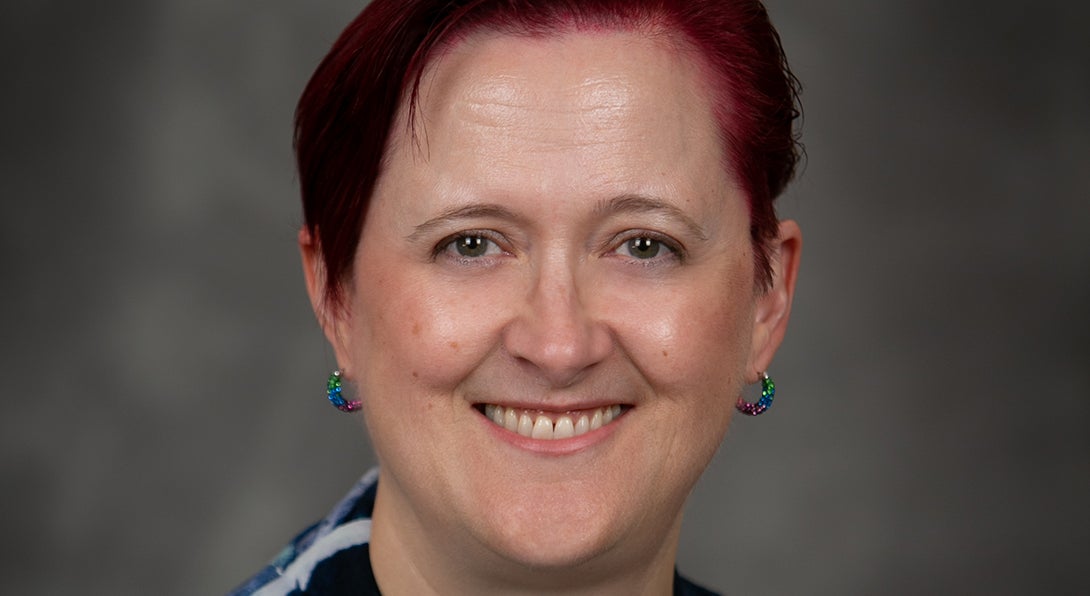Healing a Healer

In my last blog, I discussed my burnout journey. Honestly, I continued to hover in and out of that state even after that posting. I was seeking something more than just a state of “not burned out.” However, attaining a sustained state of wellness has been difficult. So I continued to seek something, without naming it. I didn’t feel like wellness encompassed it enough.
I continued my weekly walks with Brene Brown, exercising, and other wellness methods. I completed a values-based exercise for being “whole-hearted.” I even came to the realization that I am a healer and a mentor and that my life revolves around these roles. I kept missing something … until I found a session at the Society of Teachers in Family Medicine called “Intentional Leadership …” given by two leaders in Behavioral Medicine in Family Medicine in May 2022. In this session, we were given time and space to debrief and grieve our COVID experiences. This time to reconnect and make new connections while grieving was fulfilling. While this session assisted my continued reflection, I did not realize what more was needed.
Just after this conference, I performed in the ensemble in Mamma Mia. I found collective effervescence in singing with the cast. It was just like attending an amazing artist in concert, or singing in the church choir, or rollerskating — and this spiritual moment was uplifting for me. Again, I continued to seek something more.
In September, I attended the Behavioral Forum in Chicago, and a plenary session discussed healing projects that other behavioralists created for their communities, and I participated in several exercises. One included coloring a feather centered around “what is healing?” My feather was gathered with the others’, and a pair of wings was created. It was so powerful, and in that moment, I knew I need to work on healing our medical community. But I was still not healed.
Throughout this entire experience, I have been writing an essay about my experience with my mother’s cancer journey. Through my writing, I continued my grieving process for that time. This writing process helped me gain insight that I was missing the healing process in my journey of burnout. The key was grief.
During COVID, there were so many mixed emotions, and these linger now that COVID is not as impactful. But what we haven’t processed, as a medical community or even as a nation, is our grief.
If we look at a socio-ecological model, healing cannot just be targeted at the individual. It must also be completed at the clinic/institutional and regional levels. Nationally, there was a ceremony to honor the people we lost to COVID-19. However, we have not created time or space for our communities. Instead, our grieving process has to be done on our own, if we can even name what is still unsettling us. There have been many moral injuries during the past several years, and this will take years of reflection, therapy, etc. And there is still much grieving — for loss over human rights, loss of life, loss of control, loss of a (pick another one), etc. There has been so much loss that time to grieve needs to be longer and more substantial.
My grief had been profound. I cannot compare my grief to others and I will only speak for myself. But the grief I have observed others experiencing has also been substantial. I had not realized how profound it was or how much energy I gave to help myself grieve. I realized how little time people had to grieve with the multitude of these episodes.
All my wellness and grieving work came to a tipping point one weekend. I had just received word that I was able to remove a responsibility off my plate. I was in a place of connectedness and feeling connected to a larger whole. I spent time with my daughter eating hotpot, connecting with amazing colleagues, swimming for the first time in years, and lunching with my bestie. I felt the shift into healing. It was indescribable and uplifting.
When searching for the definition of healing, Thomas Egnew found themes of wholeness, narrative and spirituality that allowed one to reconcile meaning to distressing events. These themes allowed transformation and transcendence of suffering. While not mentioned in this qualitative study, grief is a distressing event and thus must be part of the healing process. My transformation required all of these elements coalescing within one weekend and steered my path into a healing one.
“Healing is an intense, personal and subjective experience” per Egnew. My journey is uniquely different from my colleagues’. Clinics, institutions must give time and space for this asynchronous process as placing sole responsibility on the individual adds to burnout and resistance. We need to meet our healers, like our patients, as they are. We have to build an emotionally safe environment in which to connect and share our narratives over time. This can help healers feel acceptance and meaning that can eventually lead to transcendence and healing.
References:
Brown, Brene. “Living into our values.” https://brenebrown.com/resources/dare-to-lead-list-of-values There is a 2-part exercise with this [accessed: March 5, 2023].
Carls, Paul. “Emile Durkheim.” Internet Encyclopedia of Philosophy. https://iep.utm.edu/emile-durkheim/ [accessed: March 5, 2023]
Egnew TR. The meaning of healing: transcending suffering. Ann Fam Med. 2005 May-Jun;3(3):255-62. doi: 10.1370/afm.313. PMID: 15928230; PMCID: PMC1466870.
Hepworth and McDaniel. “Intentional Leadership in Uncertain Times.” STFM. Indianapolis. Saturday, April 30, 2022.
Valeras, Odom, Romain, Talen. “Gathering in: The Healing Power of Art.” Behavioral Forum in Family Medicine. September 7, 2022.
About the Author Heading link
Dr. Dominique Fons is a Clinical Assistant Professor in the Department of Family and Community Medicine.